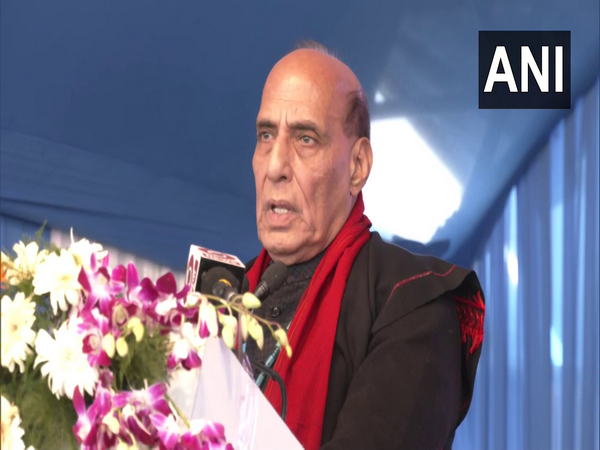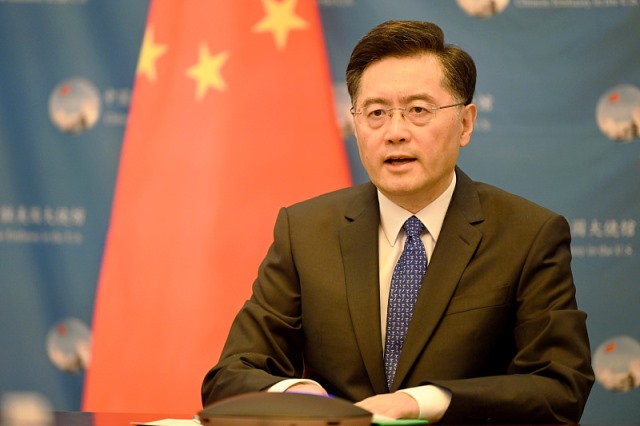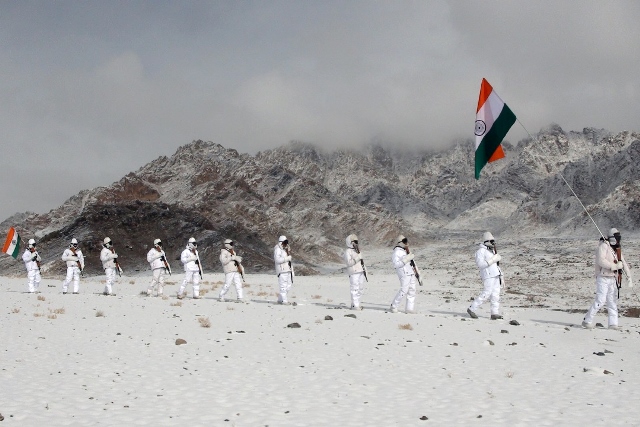Indian Armed forces and Border Road Organisation are prepared to defend the country against any conflict, said Defence Minister Rajnath Singh in Arunachal Pradesh on Tuesday emphasising that India does not believe in war and always wants to maintain cordial relations with its neighbours.
Defence Minister Rajnath Singh was speaking during the inauguration of the Siyom Bridge of the Border Roads Organisation (BRO) in the Siang district of Arunachal Pradesh.
This is Singh’s first visit to Arunachal Pradesh after the face-off between Indian and China troops in the Tawang area on December 9.
The Defence Minister today inaugurated 28 infrastructure projects built by the BRO across seven states. These projects are going to be built to facilitate the movement of heavy artillery and the movement of the troops of the Indian Armed Forces along borders.
“In this era of changing priorities and interests of the nations, it is necessary for any nation to keep itself empowered. Although, India has always remained against war as its policy. Our Armed forces are always ready to face any kind of situation and Border Road Organisation is walking along with them,” Rajnath Singh said.
He further added that PM Modi’s government is working on developing better and smooth commuting facilities for the people in the country, especially in the North-East areas.
“PM Modi’s government is working on developing better and smooth commuting facilities for the people in the country, especially in the North-East areas. These roads are significant from the strategic point of view too,” Singh said.
He further added that a large number of Armed forces personnel are deployed in areas where no transportation is available throughout the year, and in winter most of the roads get closed due to snowfall. These projects will provide extreme help in the delivery of rations, military equipment, and other help,
At the event, Singh also released the ‘Vision BRO@2047’ document that will guide the organization about its deadline and targets in the next 25 years. The document is a comprehensive study based on an analysis of BRO’s Strengths, Challenges, Opportunities, and Threats. It will help BRO to achieve new capabilities with more power.
“I appreciate the role and contribution of BRO in strengthening Border Security. For example a few days back the situation we faced in the northern sector, and the way we faced adversaries, was not possible without adequate infrastructural development. Such situations will keep us inspired for the development of border areas. And I can proudly say that we have a dedicated organization-BRO for development in these areas,” he said.
He said that infrastructure development transforms lives the lives of f people living in Border areas it is a game changer for locals.
“In plains, the government is constructing smart roads but in many Border areas roads are scarce. Many areas even don’t have basic tracks. In such remote areas, the government has initiated several welfare schemes along with basic civic amenities like electricity, telecommunications, education, and health that require connectivity,” Singh said.
“Despite being beautiful and full of natural resources, the entire North East region remained ignored from development. Even after several years of freedom, the region was ignored in the name of security issues or connectivity and remains deprived of basic facilities and it has largely affected the economy of the region,” he said.
The Defence Minister said that the North-East region is important not only for the development of the entire nation but is a gateway to east Asia and strengthens relations with East Asia in terms of trade, travel, and tourism. For this reason, the development of the region is the priority of the government
“A total of 28 projects at the cost of Rs 724.3 crore are being undertaken by BRO across the country in strategic locations – including eight in Ladakh, two in Rajasthan, three each in Uttarakhand and Punjab and four have been identified in Union Territory of Jammu and Kashmir,” Singh added.
Defence Minister Rajnath Singh lauded the spirit and speed with which the BRO carried out development works in the recent past.
“The spirit and speed with which the BRO has carried out development works in the recent past are commendable. The plan to connect more and more border areas is the priority of the government, so that along with the development of the people living there, they can develop a sense of trust in the system,” said Singh.
Defence Minister further called the Border Roads Organisation actual brothers of the armed forces and people.
“I used to confuse BRO (Border Roads Organisation) with ‘Bro’ means brother but after seeing the work they are doing, they are actually brothers of our Armed forces and people,” he said.
The visit comes a month after Indian and China troops clashed along the Line of Actual Control (LAC) in the Tawang sector.
The 100-metre-long Siyom bridge over river Siyom is a strategically important bridge as it gives the military a strategic advantage in deploying troops to the far-flung areas of the Line of Actual Control. (ANI)
Read More: http://13.232.95.176




